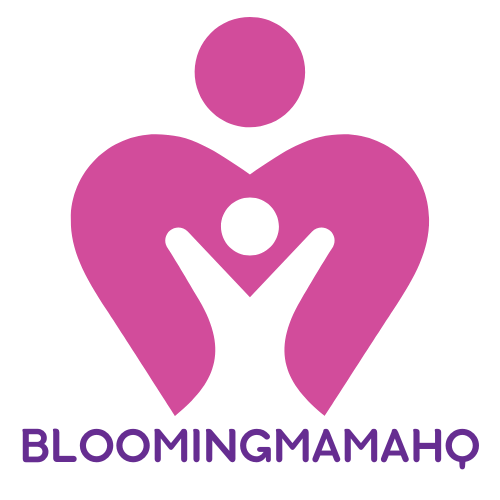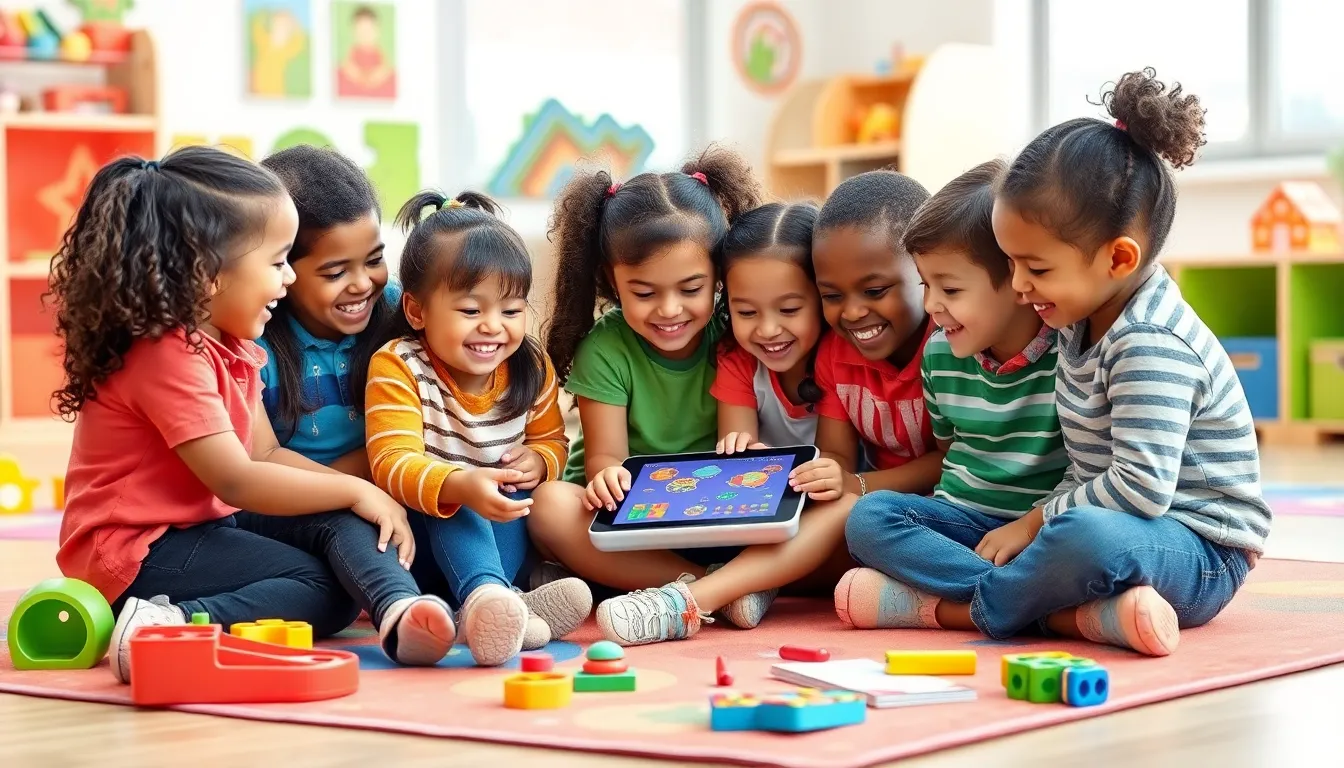In a world where toddlers seem to have a natural affinity for screens, it’s time to turn that fascination into something educational. Kids’ preschool learning games are the perfect blend of fun and learning, transforming playtime into a brain-boosting adventure. Imagine your little one mastering numbers, letters, and problem-solving skills while giggling at animated characters and colorful graphics. Who knew learning could be this entertaining?
These games aren’t just a clever distraction; they’re a gateway to developing essential skills that set the foundation for future success. With engaging content designed for tiny hands and curious minds, kids can explore everything from math to language arts without even realizing they’re learning. So, let’s dive into the world of preschool learning games and discover how they can turn your child’s playtime into a powerful learning experience—because who says education can’t be a blast?
Table of Contents
ToggleOverview of Kids Preschool Learning Games
Kids preschool learning games serve as effective tools for enhancing early education. These engaging activities blend play with learning, promoting cognitive development. Games often cover various subjects, including math, reading, and problem-solving.
Animated characters capture children’s attention, encouraging participation. Interactive features facilitate hands-on learning experiences. Bright colors and fun sounds create an inviting atmosphere, making education feel like play.
Many games incorporate age-appropriate challenges, adapting to individual skill levels. This adaptability keeps kids motivated while they learn foundational concepts. Furthermore, repetition in games reinforces knowledge retention, aiding memory development.
Parental involvement often enhances the gaming experience. Parents can explore games with their children, enabling discussions on concepts learned. This collaboration fosters a supportive learning environment, emphasizing the importance of education in everyday life.
Available across various platforms, these games offer accessibility. Many options exist as apps, while some are available online, allowing flexibility in learning. Devices used can easily include tablets, smartphones, or computers, making them convenient for home or on-the-go play.
Overall, kids preschool learning games illustrate the blend of entertainment and education. By prioritizing interactive play, these games empower children to learn essential skills in a fun environment. Parents can find an array of choices tailored to their child’s unique interests and learning needs, encouraging preschoolers to embrace education from an early age.
Benefits of Kids Preschool Learning Games

Kids preschool learning games offer numerous advantages that enhance early education. These games not only make learning enjoyable but also promote essential skill development in a playful manner.
Cognitive Development
Cognitive development receives a significant boost through engaging preschool learning games. These interactive activities encourage critical thinking and problem-solving. Kids tackle age-appropriate challenges, which adapt to their skill levels, ensuring concepts are understood rather than memorized. With colorful graphics and animated characters, attention spans increase, facilitating better retention of information. Engaging with math and language arts improves foundational skills, setting a strong base for future learning. Research shows that repeated exposure to educational concepts enhances cognitive abilities, making learning not only effective but also enjoyable.
Social Skills Enhancement
Social skills enhancement occurs organically in collaborative preschool learning games. Kids often play together, sharing ideas and strategies, which fosters teamwork and communication. Conversations sparked during gameplay develop important conversational skills, teaching turn-taking and empathy. These games encourage children to work cooperatively toward shared goals, cultivating a sense of community. Parental involvement further enriches the experience, as parents can guide discussions about teamwork and social interactions. By navigating challenges together, kids learn to value others’ perspectives, laying the groundwork for positive social relationships in the future.
Popular Categories of Preschool Learning Games
Preschool learning games come in various formats, each tailored to enhance children’s educational experiences through play. Two popular categories include educational board games and interactive digital games.
Educational Board Games
Educational board games provide hands-on learning opportunities. They often encourage teamwork and social interaction, which helps children develop communication skills. Games like Chutes and Ladders or Candy Land teach counting and color recognition while offering fun gameplay. Engaging in these games allows kids to practice decision-making and strategic thinking. Additionally, they often incorporate themes that relate to math, reading, and problem-solving, reinforcing lessons learned in the classroom. Families can participate together, transforming playtime into valuable bonding moments that foster learning outside formal settings.
Interactive Digital Games
Interactive digital games captivate preschoolers with colorful graphics and engaging storylines. These games often cover essential skills such as number recognition or vocabulary development while maintaining children’s interest. Apps designed for young learners adapt challenges based on individual skill levels, ensuring a personalized gaming experience. Animated characters guide players through activities, encouraging them to solve problems and make choices. Positive reinforcement through rewards and achievements enhances motivation, making learning effective and enjoyable. Parents find that these games can supplement traditional learning, offering a flexible approach to education that fits into their children’s daily routines.
Tips for Choosing the Right Learning Games
Selecting suitable preschool learning games involves considering essential factors. Prioritizing age appropriateness and skill development ensures an effective educational experience.
Age Appropriateness
Choose games that match children’s developmental stages. Activities designed for preschoolers promote engagement and understanding. Look for games specifically targeted at ages three to five, as these often align with current learning standards. Assess game content for complexity; simple instructions and clear objectives facilitate learning. Avoid overly challenging games, as frustration may detract from the fun of learning. Games featuring popular characters or themes can also enhance appeal for this age group, maintaining interest while teaching fundamental concepts.
Skill Development Focus
Focus on games that emphasize key skill areas. Target skills like literacy, numeracy, and critical thinking for balanced development. Seek games that pair educational objectives with entertaining gameplay, making learning enjoyable. Invite variety in subjects; this encourages well-rounded knowledge without monotony. Evaluate whether games provide adaptive challenges tailored to different skill levels, ensuring personal and meaningful engagement. Games that offer rewards for achievements motivate children and promote a positive attitude toward learning as they progress.
Preschool learning games offer a unique opportunity for children to engage in educational experiences that are both enjoyable and effective. By blending fun with essential skill development, these games not only capture kids’ attention but also foster a love for learning from an early age. As children explore various subjects through interactive gameplay, they build a strong foundation for future academic success.
Parents play a crucial role in enhancing this experience, guiding their children through collaborative play and encouraging social interactions. With the right selection of age-appropriate games, families can create a supportive learning environment that nurtures curiosity and critical thinking. Embracing the world of preschool learning games can transform playtime into a valuable educational journey, setting the stage for lifelong learning.



